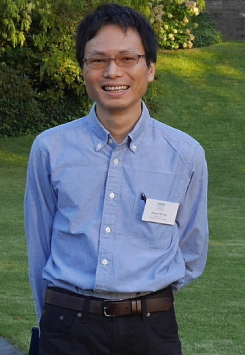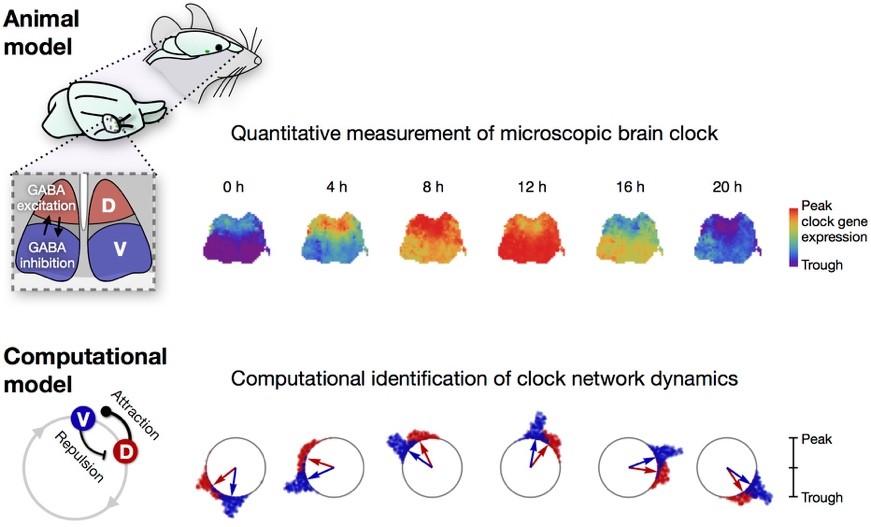
Jihwan Myung
6620-2589 #10520
- 生理節律神經科學
- 計算神經科學
- 分子生物學
- 時間意識

Neural Circuit of Circadian Clocks
While a single cell is fully capable of maintaining a circadian clock, evolution chose a multi-cellular clock system in mammals. We have previously found that the main circadian clock, the suprachiasmatic nucleus (SCN), can be reduced to a simple neural circuit of two oscillators. The two-oscillator model predicts novel stability pockets that enable previously unforeseen circadian behaviors. These new insights provide us with specific model-based strategies that we can test in vivo and ex vivo. We seek clinical applications of these findings to quickly stabilize circadian rhythms under unusual seasonal conditions or after abrupt transitions to a new day-night cycle.
Circadian Regulation of Time Perception and Mood
The seasonality is an important cue for mood fluctuation, as evidenced by a seasonal peak of suicide rate among the major depression and affective disorder patients (let us recite T.S. Eliot’s “April is the cruelest month”). Psychological studies show that the second-to-minute scale time perception can be a good indicator of the mood state. There is strong evidence that the perceived time length is a function of dopamine and serotonin release, which are likely to be regulated by circadian and seasonal rhythms. We are putting these clues together to understand how circadian rhythms modulate degrees of time perception and distinct mood states. These studies have substantial potential to open up new avenues of treatment for abnormal mood conditions.
Natural Philosophy of Subjective Time
Time has occupied a special place in the thoughts of philosophers and neuroscientists alike. Building on Aristotle’s concept of the now, or the nun, Henri Bergson notes that conscious awareness is intermingled with duration in time, or durée. Entanglement of subjective awareness and time is an important concept in cognitive neuroscience under the term episodic memory, which Endel Tulving illustrates as “the brain’s time machine”. We exploit that time is felt through mood, and attempt to delineate neural mechanisms underlying subjective time through mood attributes.



